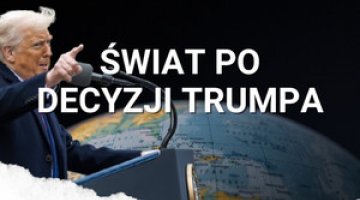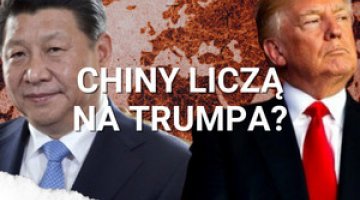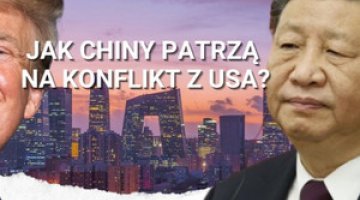Maintaining the status quo: the elections in Taiwan
On 13 January, the Republic of China (Taiwan) held parliamentary and presidential elections. The incumbent vice-president, Lai Ching-te of the Democratic Progressive Party (DPP), won the latter contest with 40.05% of the vote. His two challengers, Hou Yu-ih of the Nationalist Party (Kuomintang, KMT) and Ko Wen-je of the Taiwan People’s Party (TPP), received 33.49% and 26.46% of the vote respectively.
In the voting for parliament (the Legislative Yuan), no party won a majority (57 out of 113 seats). The DPP’s previous share of 61 MPs fell to 51. The KMT will have 52 MPs in the new parliament, up from 38, while the TPP will have 8, up from five. Two seats will go to independent MPs. The turnout in this election was 71.86%, more than 3 percentage points lower than in 2020.
Commentary
- The outcome of the Taiwanese election is of critical importance for the island’s relationship with China, which claims the entire territory under the administration of the Republic of China and has not ruled out the use of force to gain control of it. The results of the vote also form part of the Chinese-US rivalry in East Asia (see The silicon shield. Taiwan amid the superpowers’ rivalry). All three presidential candidates and their parties have called for the status quo to be maintained, and insisted that Taiwan’s future can only be decided through negotiations and the democratically expressed will of the Taiwanese people themselves. They have offered different ideas on how to achieve this. The DPP wants to boost the island’s defence capabilities, diversify its economic relations and deepen its ties with the US and its allies, most notably Japan. The KMT believes that as Taiwan expands its military capabilities, it should also tighten its economic and socio-cultural ties with China in order to ease tensions. The party has not ruled out a future reunification with the People’s Republic of China (PRC) provided that it becomes democratic. The TPP has also called for raising defence spending (to 3% of GDP), but it believes that it is necessary to reach some sort of compromise with China; however, the party’s leaders have failed to offer any details on how this is to be achieved.
- The DPP’s victory means that there will be no shift in Taiwan’s attitude to China. The Taiwanese government will continue to deepen its ties with the US and its allies, pursue free trade agreements with the US and the EU, and strive to join regional initiatives for economic integration while continuing to expand its armed forces. In this situation, it is out of the question that the ruling DPP will take any steps that could be interpreted as a formal declaration of independence.
- The results of the vote are a sign of crisis for Taiwan’s two main political parties, the DPP and the KMT, which have created a duopoly on the island through a political system based on single-member constituencies and simple majority rule. The DPP’s candidate has won the presidential election for the third consecutive time, which shows that public support for this party and its agenda towards China remains strong. However, it has been eroding among voters who are disillusioned with the party’s unfulfilled promises in the socio-economic sphere. Taiwanese people, especially those who are just beginning their adult lives, are dissatisfied with stagnant wages, long working hours, limited labour rights, expensive housing, insufficient protection of tenants and growing income stratification. Paradoxically, for the younger generation, who have overwhelmingly adopted a Taiwanese identity, the issue of Taiwan’s distinctiveness has been settled, and they now expect politicians to address quality of life issues as well. If the DPP wants to retain the presidency and reclaim the parliament in the next election, it will have to take its own demands for socio-economic reforms seriously.
- Despite the obvious struggles faced by many voters, the KMT has failed to win over the majority of the electorate. In its post-election narrative it has claimed that the participation of the TPP’s candidate robbed it of victory in the election, but the reality is that the KMT faces the problem of the continued existence of a representation of Chinese nationalists in a country where less than 3 percent of those surveyed consider themselves exclusively Chinese. The KMT’s programme of simultaneously tightening economic cooperation with the PRC while maintaining the country’s de facto alliance with the US is self-contradictory, and inspires little trust beyond the party’s core electorate. The KMT is unlikely to attract the majority of those who voted for Ko Wen-je (TPP), most of whom are young people who consider themselves exclusively Taiwanese and are wary of any ties with China. Although this group of voters chose the TPP to punish the DPP, they would not shift their support to the KMT. The Nationalist Party is in danger of losing its role as one of the country’s two main political parties to the TPP in the future. The KMT’s voter base is ageing rapidly: the only age group in which the party achieved success is those over 60, whereas it gained only marginal support among the youngest voters. The competition between the KMT and the TPP will also have a negative impact on the ability of these parties to work closely together in opposition to the DPP government.
- Despite losing its parliamentary majority and pulling off a narrow victory for its presidential candidate, the DPP will retain power, but it will have to make deals with the opposition. Taiwan has a semi-presidential system where the head of state designates the prime minister who appoints ministers; the prime minister does not need a vote of confidence from parliament. The Legislative Yuan has the power to dismiss the head of government, but the president can respond by reappointing the person of their choice or calling new parliamentary elections. In the divided parliament, the TPP will play a key balancing role. For this reason it is unlikely to risk this position by voting to dismiss the prime minister, as such a move could trigger early elections. As a result, the DPP will retain control over executive and foreign policy. Since the Nationalist Party has failed to win a majority, it will find it difficult to block the government’s legislative agenda, but the DPP will still have to seek a broad cross-party compromise or strike tactical deals with the TPP. Both the TPP and the KMT are unlikely to vote against popular social programmes or any increases in defence spending, as all the parties called for such measures during the election campaign.
- China appears incapable of abandoning its Taiwan strategy, which is based on a combination of military pressure and economic incentives aided by a disinformation campaign. It has employed these measures for the third successive electoral cycle on the island, but once again it has failed to secure the desired result of returning the KMT, the party it favours, to power. However, China’s continued use of these measures primarily stems from its domestic conditions. The pursuit of Taiwan’s ‘reunification’ with China is one of the components of the CCP’s efforts to build up its legitimacy; in the face of rising nationalist attitudes, the Chinese leadership has to maintain its tough rhetoric backed up by shows of force. However, China will act cautiously so as not to jeopardise the recent stabilisation of its relations with the US (see ‘Reassurance, but no breakthrough. The Sino-US summit in San Francisco’).
- Similarly, the US does not want to provoke China. After the elections in Taiwan, the Biden administration sent only an informal delegation to the island, which included retired officials such as the former National Security Advisor Stephen Hadley and the former Deputy Secretary of State James Steinberg. China has expressed its customary outrage and opposition to this visit, but these reactions appear to be primarily tailored to the needs of the Chinese public. The PRC’s foreign propaganda has highlighted Lai Ching-te’s low result as a supposed indication of the DPP’s lack of legitimacy to govern, but this has also provoked questions about the electoral legitimacy of the CCP leadership itself. Therefore, it appears that the Chinese government will not be able to exploit this issue for very long, especially as it does not resonate very well in Taiwan itself.
- Two days after the election, the island state of Nauru announced that it had switched its diplomatic recognition from the Republic of China (Taiwan) to the PRC. As a result, the number of countries that have diplomatic relations with Taiwan has fallen from 13 to 12. Taiwan had been anticipating this move for some time, since the change of ruling coalition in Nauru, but the timing of this announcement most likely stemmed from Chinese pressure. The loss of this Pacific partner will not hurt Lai Ching-te, because the Taiwanese public understands that what really matters to the country’s security is its informal relationship with the US and its allies. In fact, this development has shown that China’s leverage over Taiwan is greatly limited.
- In the short to medium term, the outcome of the election will not affect relations between Taiwan and China. These will remain tense, but both sides are keen to keep them below the threshold of outright conflict. Taiwan does not want to escalate tensions or provoke China, while the PRC is not ready for a head-on clash with the US, which would inevitably follow any fighting in the Taiwan Strait. In the longer term, however, a further escalation of Taiwanese-Chinese tensions seems inevitable. This stems from the global situation and the growing Chinese-US rivalry as well as from the domestic conditions in both Taiwan and China. Since Taiwan’s democratisation in the 1990s, the chasm between the KMT’s Chinese nationalism and the rising Taiwanese nationalism espoused by the DPP has formed the main axis of the ideological division on the island. The latter’s victory and the consolidation of a distinct Taiwanese identity, perhaps even the formation of a Taiwanese nation, means that the focus of the political dispute has been shifting to socio-economic issues. At the same time, this has generated a new conflict between Taiwanese national aspirations and China, where the CCP has been trying to prop up its authoritarian rule by tapping into Han nationalism.




